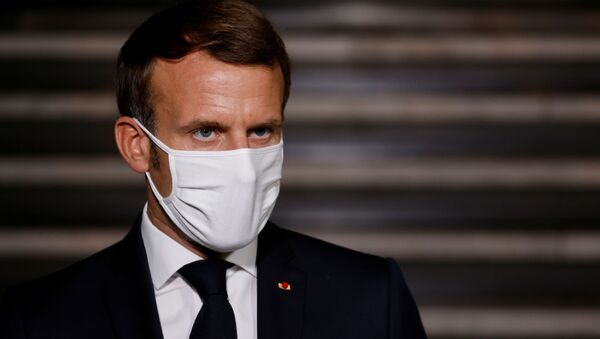France has seen a resurgence in virus infection rate since early autumn, with the pandemic significantly gathering pace in October. Health authorities have registered daily record high of over 52,000 new cases on October 25, and confirmed that the country is in the grip of the second wave of the virus.
"Some countries, like Spain, Ireland, the Netherlands, took harsher measures earlier than ours. Yet we are all at the same point: overwhelmed by a second wave that we now know will be harder, more deadly than the first," Macron tweeted.
France is due to enter a month-long nationwide lockdown on Friday. Bars, restaurants, non-alimentary shops will be closed, public gatherings and travels to other regions of the country are to be prohibited. However, schools and other educational facilities will remain open with intensified health protocols.
Macron also said in his address to the nation on Wednesday evening that the authorities will adjust restrictive measures to the evolution of the virus spread, which will be monitored. He stressed that if the epidemiological situation improves within next two weeks, the government will consider easing of limitations, including reopening of some stores.
The government will also renew the system of partial unemployment for employers and workers, whose activities will be halted or limited by the lockdown, the French leader noted. The program was introduced during the first outbreak in March-May and then remained in effect for economic sectors hit hard by the pandemic. Companies under the scheme receive payments from the state, which partially covers staff wages.
According to Macron, EU countries will keep borders open for each other, but the bloc's external frontiers are to be shut. However, Europeans will be able to return to their countries from abroad freely, he added.
French Prime Minister Jean Castex is due to unveil more detailed information on the measures on Thursday.
As of Thursday, France has confirmed 1,280,215 COVID-19 cases with the death toll of 35,283.


